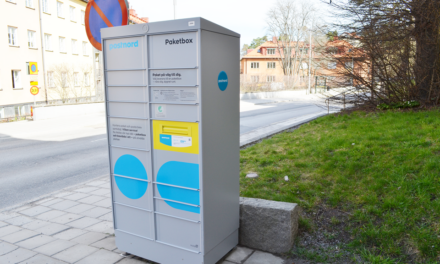
Weather and web made for ‘perfect pre-Christmas parcel storm’, says GFS
Extreme bad weather and unprecedented volumes in internet shopping were mainly to blame for UK’s pre-Christmas parcel chaos, according to new research. A study has shown that heavy snows which hampered parcel carriers also fuelled record online sales, generating huge extra volumes of packages which made couriers even less able to make deliveries.
But the analysis by the parcel and carrier manager, Global Freight Solutions (GFS), has concluded that the impact on businesses and households could have been reduced.
Managing director Neil Cotty has claimed that a lack of planning resulted in maximum stress being placed on the parcel industry when it was least able to cope.
“No-one could have foreseen the toll taken by the snows on parcel deliveries with any precision. However, people knew that Christmas would involve an increase in shipments. It appears that both carriers and their customers were simply not well enough prepared.”
GFS examined next-day deliveries across the UK in the eight weeks leading up to December 24. The period included a peak in parcel traffic at the beginning of November, when high street stores started stocking shelves, and a peak in home deliveries following the biggest single day for online shopping on November 29.
The data showed how parcel carriers efforts to move those shipments were badly affected by the first of two belts of heavy snow. But as couriers were battling against the weather, consumers stayed away from the wintry high street and continued their Christmas shopping on the internet.
That extra business led to £6.8bn worth of goods being bought online during December – an increase of 25% – and created an extra 4m parcels a day for carriers to deliver. The shopping boom provided a third peak in pre-Christmas parcel volumes, which coincided as a second bout of heavy snow hit the UK on 17 December.
The result was a backlog of presents which didn’t arrive in time for Christmas and was only declared completely clear by New Year’s Eve.
Cotty said certain carriers had been overwhelmed by the proportion of pre-Christmas parcel traffic now accounted for by online sales. He added that some retailers admitted failing to put contingency measures in place earlier in the year in order to keep costs down.
But after their regular carriers reported difficulties, said Cotty, they left customers unhappy because they were unable to find alternative ways of making deliveries.
“Few if any parcel carriers will take on new clients anyway during December because they know they’ll be busy. Because of the additional pressures created by snow and the backlogs it generated, the chance of finding additional carriage last December was non-existent.”
Cotty said the experiences of parcel carriers and clients alike illustrated how change was needed to prevent a repeat of the pre-Christmas problems.
“Our study brought home the importance of year-’round continuity planning to both carriers and the firms they serve.
“Many of issues, such as the impact of staffing on carriers service levels or the ability for businesses to rely on more than one courier at very busy periods, are present throughout the year. However, the combination of factors before Christmas last year made their significance all the more apparent.
“Failure to fulfill customer orders and deliver parcels on time has significant cost, both in terms of lost business and damaged reputations. Yet subtle changes to the way carriers and clients operate at this time of year can mean big improvements.
“Having carriers working extra days in the run-up to Christmas, just as retailers now commonly do, will relieve some of the strain they’re under. Likewise, retailers encouraging customers to shop online earlier will reduce the number of parcels in the system at the busiest time of the year and increase the chances of presents getting to their destination in time.”













